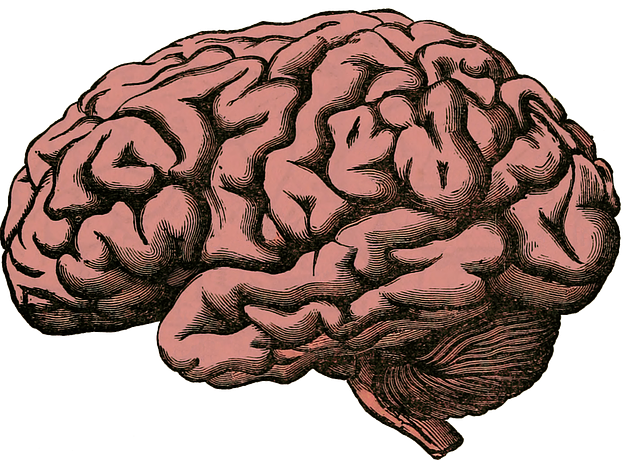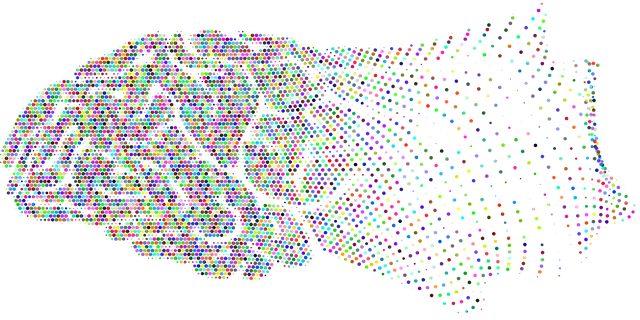Castle Rock Functional Neurological Disorder (FND) therapy is a comprehensive approach to managing mental health challenges, especially for individuals with FNDs. It focuses on equipping patients with tailored coping mechanisms through cognitive-behavioral therapy (CBT), mindfulness practices, and cultural sensitivity. These strategies empower people to confront stress, anxiety, and trauma, promoting emotional healing and preventing burnout, particularly for healthcare providers. By integrating self-care and developing robust coping skills, professionals can sustain support while maintaining their well-being. Effective FND therapy involves comprehensive assessment tools to understand individual needs, fostering resilience and positive thinking through tailored interventions, mindfulness meditation, and positive thinking techniques, enabling clients to navigate life's challenges with greater ease and composure.
Coping skills development is a vital aspect of managing disorders, offering individuals effective strategies to navigate challenges. This article delves into the significance of coping mechanisms, focusing on how they alleviate symptoms and enhance well-being. We explore tailored approaches for functional neurological disorder (FND) sufferers, highlighting the role of Castle Rock Functional Neurological Disorder Therapy in fostering resilience. By understanding individual needs and integrating coping skills into daily routines, individuals can transform their lives, finding balance and inner strength.
- Understanding Coping Skills and Their Significance in Managing Disorders
- Identifying Individual Needs: Assessing Functional Neurological Disorder Symptoms
- Strategies for Developing Effective Coping Mechanisms
- Integrating Coping Skills into Daily Life: Practical Application
- The Role of Castle Rock Functional Neurological Disorder Therapy in Enhancing Coping Abilities
Understanding Coping Skills and Their Significance in Managing Disorders

Coping skills are essential strategies that individuals use to navigate and manage their mental health and well-being. In the context of disorders like Castle Rock Functional Neurological Disorder (FND), developing effective coping mechanisms is a cornerstone of therapy. FND Therapy focuses on helping individuals understand and regulate their symptoms, and this involves equipping them with a toolkit of coping skills tailored to their unique challenges.
Understanding these skills is vital as they empower people to face stress, anxiety, or trauma-related symptoms head-on. By adopting positive thinking and emotional healing processes, individuals can prevent burnout, a common issue among healthcare providers who support those with FND. Burnout prevention strategies for healthcare providers often emphasize the importance of self-care, which is closely tied to coping skills development. This allows professionals to offer sustained support while maintaining their own well-being.
Identifying Individual Needs: Assessing Functional Neurological Disorder Symptoms

Identifying individual needs is a crucial step in developing coping skills, especially when addressing Castle Rock Functional Neurological Disorder Therapy. Each person’s experience with neurological disorders is unique, and symptoms can vary greatly. Assessing these symptoms involves a comprehensive review of an individual’s functioning, including cognitive, emotional, and physical aspects. Mental health professionals play a vital role in this process by employing various assessment tools to understand the specific challenges faced by those with functional neurological disorders (FNDs).
By recognizing the distinct needs of each client, therapists can tailor their approach, ensuring that interventions are effective and meaningful. This may involve strategies for managing symptoms like depression prevention techniques, as FNDs can significantly impact mental well-being. Additionally, risk management planning is essential; professionals must guide clients in developing coping mechanisms to navigate potential triggers and stressful situations, fostering a sense of resilience and positive thinking.
Strategies for Developing Effective Coping Mechanisms

Developing effective coping mechanisms is a vital part of managing mental health challenges, including conditions like Castle Rock Functional Neurological Disorder (FND). Therapy plays a crucial role in this process, offering tailored strategies to suit individual needs. Techniques such as cognitive-behavioural therapy (CBT) teach individuals to challenge negative thought patterns and replace them with healthier alternatives, fostering resilience.
Emotional healing processes involve learning mindfulness practices, which help individuals stay grounded in the present moment, reducing anxiety and stress. Cultural sensitivity in mental healthcare practice is also essential, ensuring that coping strategies are accessible and meaningful within an individual’s cultural context. Mental health education programs design can empower people to take charge of their well-being by providing practical tools for managing symptoms and promoting overall mental health.
Integrating Coping Skills into Daily Life: Practical Application

Integrating coping skills into daily life is a transformative process that empowers individuals to navigate challenges with greater ease and resilience. At Castle Rock Functional Neurological Disorder Therapy, we emphasize practical application strategies that help clients seamlessly incorporate techniques like mindfulness meditation and positive thinking into their routines. These tools aren’t just theoretical; they become integral parts of an individual’s coping arsenal, fostering a sense of control and well-being.
Through tailored therapy sessions, our team guides clients in developing resilience building blocks that enhance their ability to handle stress, anxiety, or other mental health concerns. Whether it’s adopting mindfulness meditation practices to cultivate present-moment awareness or cultivating positive thinking patterns that reframe negative thoughts, these coping skills offer lasting benefits. By weaving them into the fabric of daily life, individuals gain a powerful set of tools to navigate life’s ups and downs with greater ease and composure.
The Role of Castle Rock Functional Neurological Disorder Therapy in Enhancing Coping Abilities

Castle Rock Functional Neurological Disorder (FNDT) Therapy plays a pivotal role in enhancing coping abilities among individuals dealing with mental health challenges. This innovative approach focuses on understanding and managing the complex interplay between neurological functions and emotional responses, offering a holistic solution to improve mental wellness. By integrating advanced techniques into their programs, FNDT therapists design mental health education that empowers clients with effective coping strategies.
Through tailored interventions, Castle Rock FNDT helps individuals develop resilience and adaptability in the face of adversity. The therapy’s emphasis on risk assessment for mental health professionals ensures a comprehensive understanding of each client’s unique needs. This personalized approach not only addresses current coping mechanisms but also equips them with tools to prevent future mental health crises, fostering a more sustainable and balanced lifestyle.
Coping skills development is a transformative process that empowers individuals to effectively manage their disorders. By understanding and identifying specific needs, as highlighted through functional neurological disorder (FND) symptoms assessment, one can tailor coping strategies for optimal results. Integrating these mechanisms into daily life with the guidance of Castle Rock Functional Neurological Disorder Therapy enhances overall well-being and resilience. This holistic approach not only improves symptoms but also enables individuals to navigate challenges with newfound confidence and self-efficacy.














